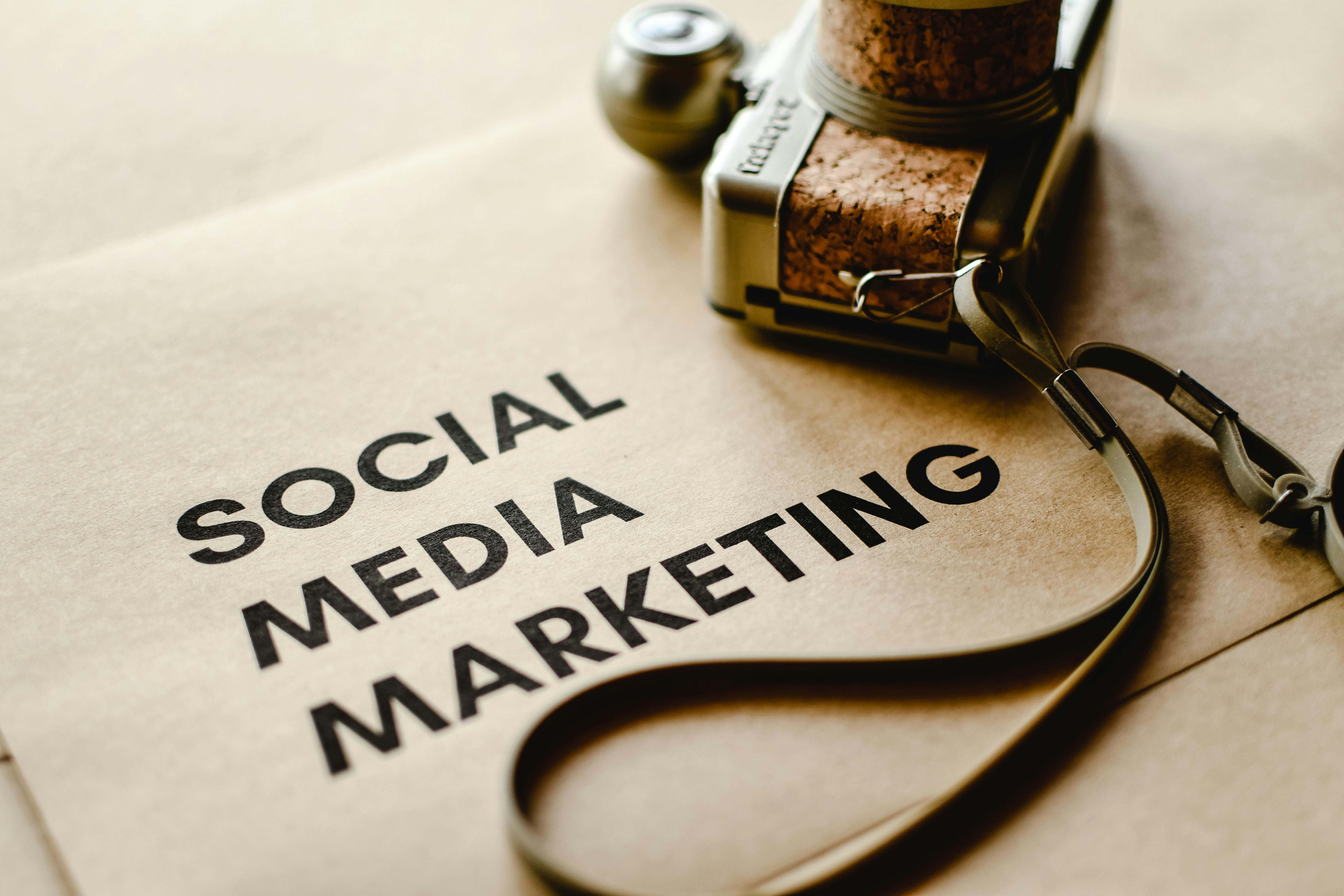AI-Powered Keyword Research: Unlock Hidden Reselling Niches for 2024
Alright, let's talk about something that's probably on your mind if you're into making some extra cash or even building a full-blown business: reselling. It’s not just about flipping old baseball cards or comic books anymore, though those can still be gold mines. The game has changed, especially with this whole AI thing shaking things up. Forget the old-school way of guessing what people want. We're about to dive into how artificial intelligence can basically be your crystal ball, helping you spot the next big thing in reselling for 2024. And trust me, it’s easier than you think to get started.
The Buzz Around Reselling: Why Now?
You might be wondering, "Why all the fuss about reselling now?" Well, it's pretty simple. People are always looking for a good deal, unique items, or things that align with their values. Plus, with the internet, you can literally sell to anyone, anywhere in the world. It’s a total game-changer. I remember back in high school, I’d spend hours at thrift stores, just looking for cool vintage band tees. My friends thought I was nuts, but then I'd sell those shirts online for way more than I paid, and suddenly, they were asking for tips. That was before AI was even a twinkle in anyone's eye. Now, with AI, it’s like having a super-smart assistant telling you exactly what people are searching for.
Beyond the Usual Suspects: Emerging Niches You Need to Know
When most people think reselling, they picture clothes, maybe electronics. But a few years ago, I stumbled upon a goldmine totally by accident. I was helping my grandma clearing out her attic, and we found a box of old, unused craft supplies – yarn, beads, fancy fabric. She was just going to toss them. On a whim, I listed some of the vintage buttons online, and they sold within minutes! It blew my mind. Turns out, there's a huge market for what I now know as recommerce or sustainable goods. It’s not just about used stuff; it's about giving things a new life, and people are willing to pay for that. This experience really hammered home that the best niches aren't always the most obvious ones.
1. Recommerce (Reverse Commerce): The Ultimate Glow-Up for Used Stuff
You know how everyone's talking about being more eco-friendly? Well, this niche is basically that in a nutshell. Recommerce is just a fancy way of saying buying and selling pre-owned items. It's not just about cheap hand-me-downs anymore. Think high-end, pre-loved fashion, refurbished electronics, vintage furniture that's got character. People want unique, quality stuff without the brand-new price tag, and they want to feel good about not contributing to waste.
It's a huge deal. Seriously, the market for recommerce is predicted to blow past $200 billion by 2026 whop.com. That's a lot of old stuff finding new homes! If you're someone who loves a good treasure hunt at yard sales or can spot potential in something someone else tossed aside, this niche is screaming your name.
2. Sustainable and Ethical Products: Goods with a Conscience
This one ties right into recommerce. People aren't just buying stuff; they're buying into values. We're talking products made from recycled materials, ethically sourced goods, items produced by companies that pay fair wages, or even just products that are designed to last. Consumers, a whopping 66% globally, are ready to cough up more cash for things that are planet-friendly and fair ecomposer.io.
Think about it: if you can offer a candle made from soy wax, a tote bag from recycled plastic bottles, or even clothes from upcycled fabrics, you're not just selling a product; you're selling a lifestyle. And people are seriously into it. This niche is about tapping into that desire to do good while still getting something awesome.
3. Health and Wellness Products: Feeling Good, Looking Good
Okay, so this isn't exactly "new," but it's constantly evolving and getting bigger. We’re talking about everything from organic supplements and natural skincare to yoga mats and mindfulness journals. People are increasingly focused on taking care of themselves, both physically and mentally. The global health and wellness market is expected to hit a massive $1.5 trillion by 2025 ecomposer.io. That’s a whole lot of green smoothies and meditation cushions.
This niche is broad, which is great because it means there's a ton of room to specialize. Maybe you're into healthy snacks, or maybe you're all about aromatherapy. Whatever your passion in the wellness world, there's likely a market for reselling products that support that lifestyle.
4. Personalized Products: Making it Mine
You know how everyone loves something that feels special, just for them? That's what personalized products are all about. Think custom phone cases, engraved jewelry, t-shirts with a unique design, or even mugs with your pet's face on them. The desire to have something distinctly "you" is huge, and it's only growing. This market is expected to reach $46.2 billion by 2027 ecomposer.io.
It's a fantastic niche if you're a bit creative or enjoy working with designs. You don't necessarily have to be the one making the product yourself, either. That brings us to our next point…
5. Print-on-Demand (POD): Your Designs, Their Products
This niche is super cool because it lets you sell personalized items without holding any inventory. With print-on-demand, you create a design – maybe it's a witty slogan, a cool graphic, or a unique pattern – and then someone else prints it onto a T-shirt, a mug, a phone case, whatever, *only when a customer orders it*. You don't buy 100 shirts upfront; you just upload your design, and the POD company handles the printing and shipping.
The POD industry is booming, projected to hit $48.4 billion by 2032 whop.com. That's a massive growth spurt! It’s perfect for those who want to dip their toes into e-commerce without the upfront risk of buying a ton of stuff and hoping it sells. It also ties in perfectly with the "personalized products" trend.
Enter AI: Your Secret Weapon for Keyword Research
Okay, so we know the hot niches. But how do you find out *exactly* what people are searching for *within* those niches? This is where AI becomes your best friend. Forget hours of manual research, sifting through Google results, or guessing what keywords will bring traffic. AI can do the heavy lifting, pointing you directly to the winning keywords.
When I started my small side hustle selling vintage concert posters, I used to just throw up whatever keywords I thought made sense: "old band posters", "rock posters", "music prints". Some did okay, but it was hit or miss. Then I started using AI-powered tools. Suddenly, I wasn't just getting "rock posters"; I was getting "limited edition 1970s concert art", "psychedelic punk rockabilia", or even "vintage gig posters for framing". These were super specific, and they brought in buyers who knew exactly what they wanted. It was like magic.
Answer Engine Optimization (AEO): Be the Go-To Answer
Think about how you use Google now. You don't just type in "shoes." You might type in "best running shoes for flat feet" or "how to clean white sneakers." People are asking questions, and AI-powered search engines (like Google's snippets or voice assistants like Alexa) are trying to give them direct answers.
AEO is all about structuring your content so that these AI systems can easily grab your answer and serve it up. This means:
- Using structured data: This sounds complex, but it's basically giving search engines little labels for different parts of your content (like "this is a price," "this is a product description," "this is a review"). Think of it like a library catalog for AI.
- Concise Q&A formats: If you're selling sustainable cleaning products, instead of just a description, have a clear FAQ section: "Q: Are these products safe for pets? A: Yes, our products are non-toxic and pet-friendly." AI loves this stuff.
- Conversational language: Write like you're talking to a friend. Avoid jargon. If someone asks Alexa, "Where can I buy eco-friendly pet toys?", your product description needs to sound natural, not like a chemistry textbook.
The goal? To be the featured answer when someone queries something related to your niche. If you sell personalized pet tags, you want AI to say, "According to [Your Store Name], the best personalized pet tags are durable and made from XYZ material." That's prime real estate. en.wikipedia.org
Generative Engine Optimization (GEO): Become AI's Source Material
This is even cooler and a bit more futuristic, but it's happening right now. Generative AI, like ChatGPT, doesn't just pull direct answers; it *creates* new content based on what it learns from the internet. GEO is about making sure your content is so good, so authoritative, and so well-structured that generative AI will use *your* information when it's answering someone's question.
Imagine someone asks ChatGPT, "What are the benefits of recommerce?" You want ChatGPT to pull facts and figures from *your* blog post or product page. To achieve this, you need to:
- Build topical authority: Become the expert in your niche. If you're selling sustainable clothing, write comprehensively about sustainable fabrics, ethical manufacturing, and the environmental impact of fast fashion. The more in-depth and high-quality your content, the more AI will trust you as a source.
- Provide in-depth and multi-perspective content: Don't just scratch the surface. Offer comprehensive guides, pros and cons, different viewpoints. If you're selling health supplements, discuss various ingredients, their benefits, potential side effects, and maybe even compare them.
- Optimize metadata for AI attribution: This is a bit technical, but it means making sure the hidden information behind your web pages (like title tags and descriptions) clearly tells AI what your content is about. This helps AI credit you as the source.
The idea is to be so good, so thorough, and so clearly an expert that when AI needs information about recommerce or personalized gifts, it instinctively turns to your website as a trustworthy resource. en.wikipedia.org
Putting It All Together: Your AI-Powered Reselling Game Plan
So, how do we actually do this? It's not about becoming a tech wizard overnight. It’s about being smart and leveraging the tools available.
Let's say you're keen on the "Personalized Products" niche, specifically personalized gifts for pet owners.
- Start with the Niche: You've picked "Personalized Products" for pet owners. Great!
- Brainstorm Initial Keywords (Human Brain): What would *you* search for? "Custom dog tags," "personalized cat bowls," "pet memorial gifts," "dog mom t-shirts," "unique gifts for pet lovers." Write everything down.
- Leverage AI for Keyword Expansion (AEO/GEO in Action):
- Use AI keyword research tools: Tools like Surfer SEO, Jasper (for content ideas), or even just asking ChatGPT things like, "What are common questions people ask about personalized pet gifts?" or "Give me long-tail keywords for custom dog apparel." These tools can quickly spit out hundreds of related questions, terms, and phrases that real people are typing into search engines.
- Focus on Q&A: Look for common questions. "Are personalized pet collars safe?" "What materials are best for engraved pet tags?" For each question, craft a clear, concise answer on your product page or blog. This is your AEO strategy kicking in.
- Dive Deep: Don't just list products. Write specific articles like "The Ultimate Guide to Choosing a Personalized Collar for Your Husky" (topical authority). Compare engraving methods: "Laser Engraving vs. Etching: Which is Best for Your Pet's Tag?" (in-depth, multi-perspective). This builds your GEO score.
- Look for intent: AI helps you understand *why* people are searching. Are they looking to buy ("best personalized dog bowls")? Are they looking for information ("how to clean custom pet dishes")? Tailor your content to their intent.
- Content Creation and Optimization:
- Product Descriptions: Instead of just "Personalized Dog Tag," make it "Durable Engraved Stainless Steel Dog Tag for Active Pups – Customize with Name & Number."
- Blog Posts: Write about trends, solving problems, or offering advice within your niche. "5 Eco-Friendly Personalized Pet Gifts Your Fur Baby Will Love." This taps into "Sustainable Products" too.
- Q&A/FAQ Sections: Integrate direct answers to common questions about your products.
- Monitor and Iterate: The AI world changes fast. Keep an eye on new trends, new search queries AI tools suggest, and how your content is performing. Are people finding your answers? Are you showing up in AI-generated responses? Adjust as needed.
Why This Matters for 2024 (and Beyond)
Look, the world of online selling is getting more competitive by the day. Just throwing stuff up online and hoping for the best isn't going to cut it anymore. AI isn't just a fancy buzzword; it's a fundamental shift in how people find information and make purchasing decisions.
By understanding how AI "thinks" and by optimizing your online presence for Answer Engine Optimization (AEO) and Generative Engine Optimization (GEO), you're not just playing the game; you're playing it smarter. You're positioning your reselling business to be discovered by people who are actively looking for what you offer, often long before they even land on a traditional search results page.
Imagine your little reselling side hustle getting mentioned by an AI assistant when someone asks a question about ethical pet products or unique personalized gifts. That's not just a click; that's prime real estate. That's trust. That's a direct path to a sale.
The niches we talked about – recommerce, sustainable goods, health and wellness, personalized products, and print-on-demand – aren't just fads. They're driven by real consumer demands and values. By combining these high-growth areas with the power of AI-driven keyword research, you're not just unlocking hidden niches; you're building a future-proof reselling business. So, go on, use that AI to your advantage. The future of reselling is here, and it's smarter than ever.



